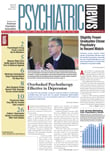What happens when people possessing the Alzheimer's risk gene variant APOE e4 live in a neighborhood fraught with multiple physical and psychological perils? It may impair their cognitive abilities, a new study suggests.
The lead researcher on the study was Brian Lee, Ph.D., an assistant professor of epidemiology and biostatistics at the Drexel University School of Public Health in Philadelphia. The results were published in the March Archives of General Psychiatry.
More than 1,000 people aged 50 to 70 living in 63 neighborhoods in Baltimore participated in the study. Fifty-four percent of the sample was white, 42 percent African American, and the rest Asian or of mixed race.
Each of the 63 neighborhoods was rated with a tool called the Neighborhood Psychosocial Hazards Scale, which evaluates potential psychological and physical hazards such as lack of education, single-parent families, economic deprivation, vacant houses, violent crime, and the number of 911 calls made annually by neighborhood residents.
The subjects were genotyped for APOE e4. The researchers found that 37 percent of the African-American subjects had one copy of the variant, and 25 percent of the white subjects did.
Each subject's cognitive performance was measured with various tests to obtain scores regarding language, reaction time, eye-hand coordination, verbal memory and learning, visual memory, visuoconstruction, abstract reasoning, decision making, and other aspects of executive function.
Finally, the researchers assessed whether possession of the APOE e4 variant, living in a hazardous neighborhood, or both was associated with cognitive test scores.
Specifically, they compared the cognitive test scores of those having the e4 variant and living in a nonhazardous neighborhood, the cognitive test scores of those not having the e4 variant and living in a hazardous neighborhood, and the cognitive test scores of those both having the e4 variant and living in a hazardous neighborhood with the cognitive test scores of those who neither possessed the variant nor lived in a hazardous neighborhood (the reference group). They also took possibly confounding variables such as age, gender, race/ethnicity, education, and household income into consideration.
Subjects who had the e4 variant and lived in a nonhazardous neighborhood did not perform worse than the reference group in any cognitive domain. That was also the case for subjects who did not have the e4 variant and lived in a hazardous neighborhood.
However, subjects who both had the e4 variant and lived in a hazardous neighborhood performed significantly worse than the reference group in two cognitive domains—processing speed and executive function. Suggestive evidence was also found for eye-hand coordination differences.
Thus, having the e4 variant and living in a hazardous neighborhood seemed to be a risk factor for poor cognitive function—in other words, the result of a gene-environment interaction, the researchers concluded.
This finding could have important clinical implications, Lee and his colleagues believe. Since the e4 variant is a strong predictor of increased risk for Alzheimer's disease, and even small decrements in cognitive function predict dementia risk, it could well be that people who have the e4 variant and who live in a hazardous neighborhood are in even greater danger of developing Alzheimer's than individuals who simply have the e4 variant and who do not live in a hazardous neighborhood.
Lee and his team are going to follow their subjects to see whether those who have the e4 variant and live in a hazardous neighborhood are at particularly high risk of being diagnosed with Alzheimer's, he told Psychiatric News. "However, our study sample is relatively young (50 to 70 years of age at baseline)" for developing Alzheimer's, so "we may not have sufficient numbers of cases to study by the time the study ends," he pointed out.
The findings by Lee and his group complement some that Guerry Peavy, Ph.D., an assistant clinical professor of psychiatry at the University of California, San Diego, and colleagues reported in the September 1, 2007, Biological Psychiatry. Peavy and his colleagues found that nondemented seniors who possessed the e4 variant and who were exposed to prolonged stress experienced memory impairment. This new study by Lee and colleagues, Peavy told Psychiatric News, "could help identify those at heightened risk for cognitive decline due to age, genetic status, and exposure to the chronic stress of psychosocial hazards. Interventions to minimize the impact of the stress by reducing the hazards or by improving coping strategies could help prevent or delay cognitive decline in those individuals who are most vulnerable."
The study was funded by the National Institutes of Health and the Johns Hopkins Bayview Medical Center General Clinical Research Center.
